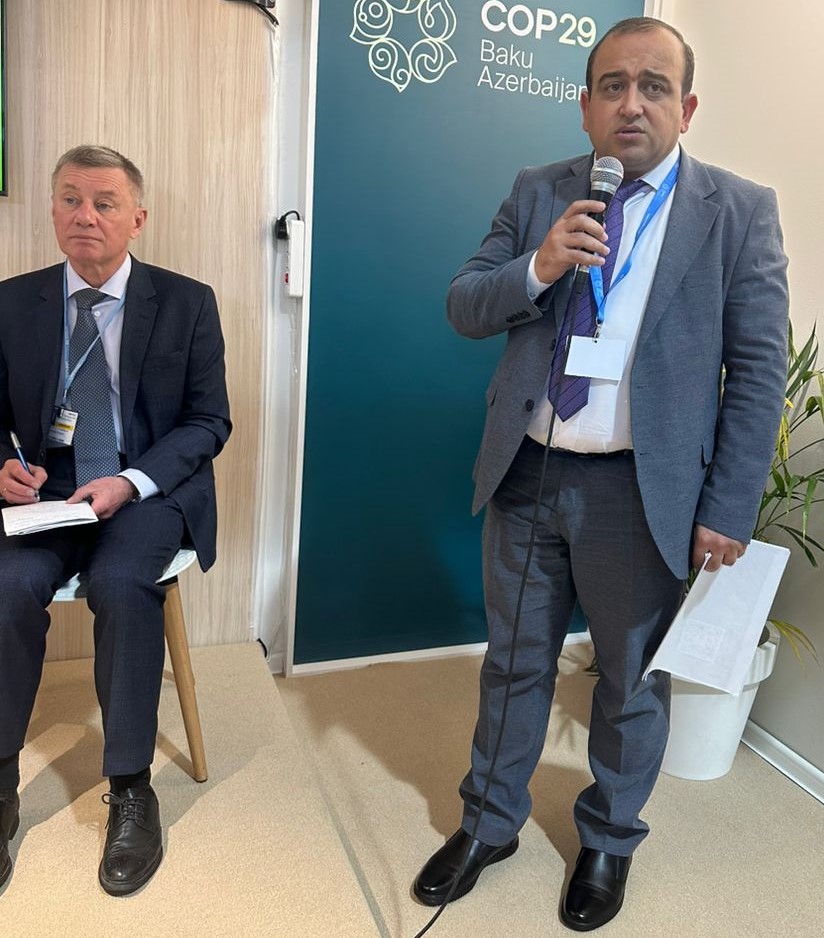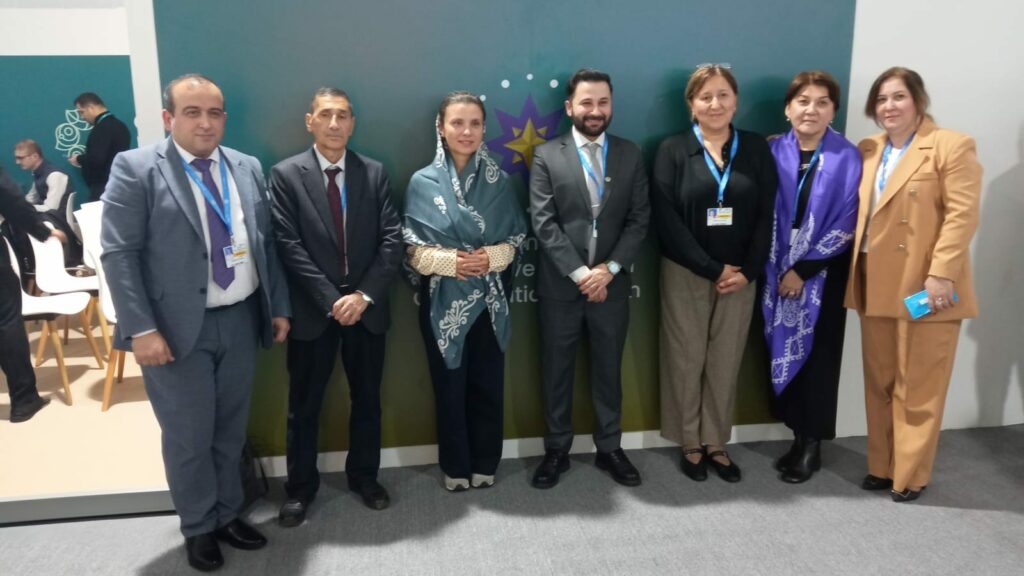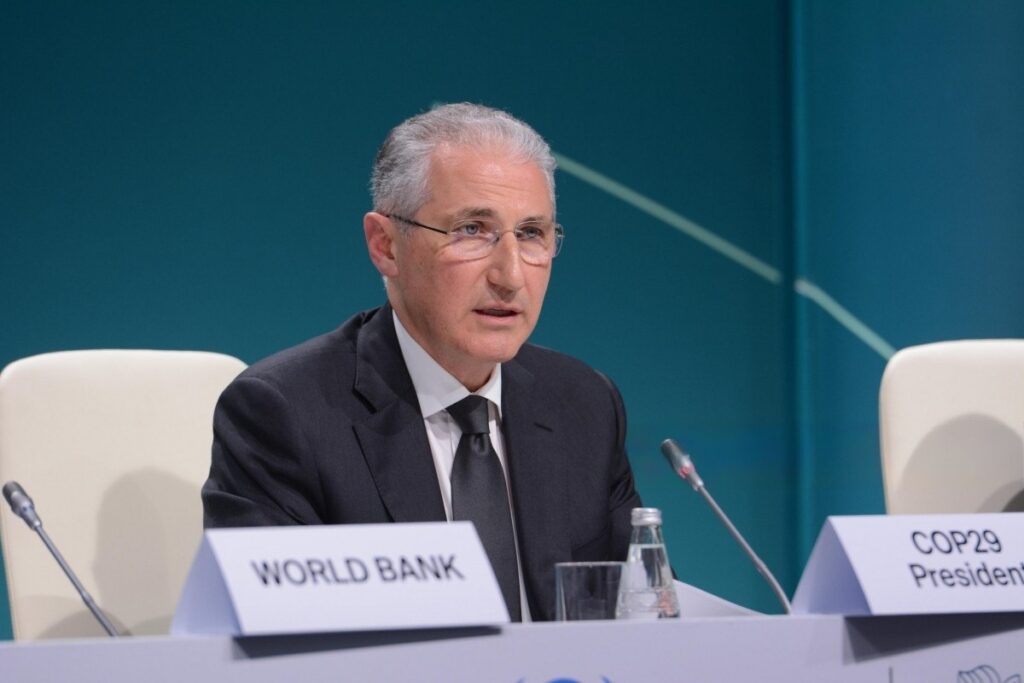Dilovarsho Dustzoda: Each Central Asian country faces distinct climate change risks
“Each Central Asian country faces distinct climate change risks, such as droughts and floods in Kazakhstan and Uzbekistan, severe weather events in Kyrgyzstan, and glacier retreat in Tajikistan, underscoring the urgent need for tailored adaptation strategies and enhanced regional collaboration to mitigate these vulnerabilities,” ReCATH Project Manager Dilovarsho Dustzoda stated today at Driving Climate Finance: Enhancing Transparency and Empowering NGOs event in Azerbaijan National NGO Pavilion at COP29.

The panel discussion “Driving Climate Finance: Enhancing Transparency and Empowering NGOs,” organized by Ecomed PU and the Regional Environmental Centre for Central Asia (CAREC), centred on the interconnection between biodiversity, climate change, and mental health. It featured experts addressing the roles NGOs play in tackling climate-induced challenges.

Panelists discussed strategies to engage international public and private sectors in funding economic development initiatives that prioritize environmental sustainability. Key contributions highlighted the need to integrate biodiversity into climate action plans, with insights from experts like Dr Aleksey Kokorin and Qaiser Nawab emphasizing innovative funding mechanisms and collaborative efforts in the face of global environmental threats.
According to Dilovarsho Dustzoda, the findings from the GNA 2022 highlight significant adaptation gaps across Central Asia. Specifically, there is a notable absence of clear institutional mechanisms, restricted access to climate data, and limited capacity to analyze climate impacts, complicating effective resource allocation and planning.
Additional information:
Dilovarsho Dustzoda, ReCATH Project Manager, recath_manager@carececo.org



